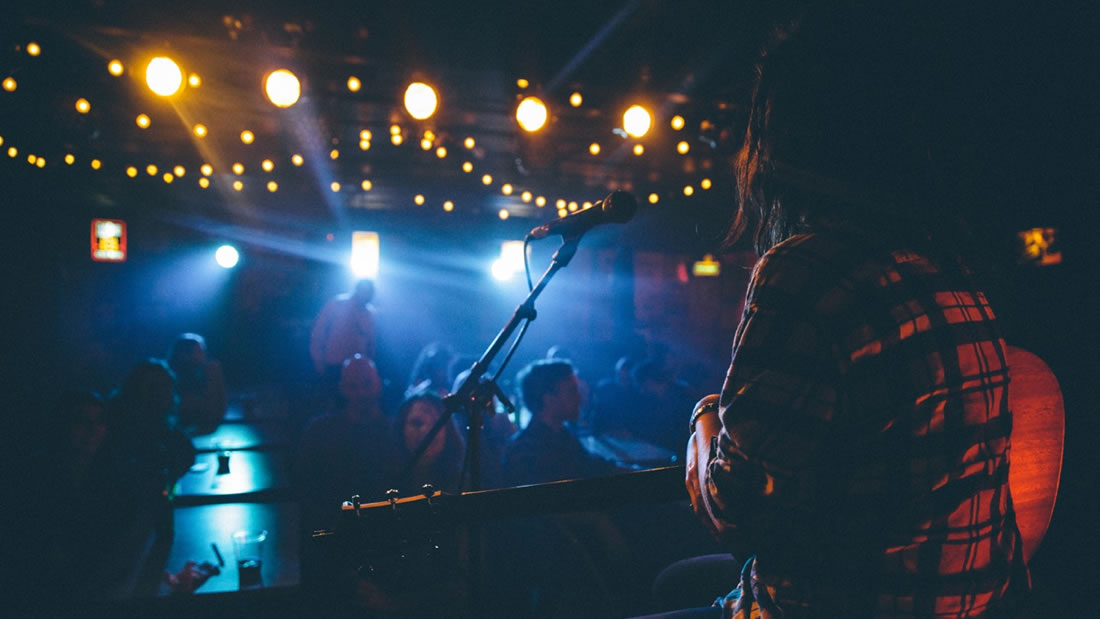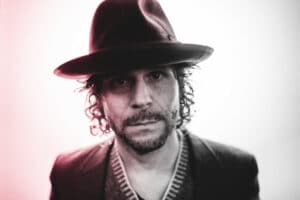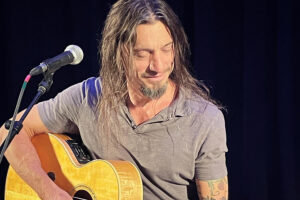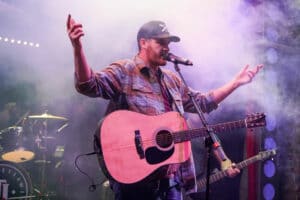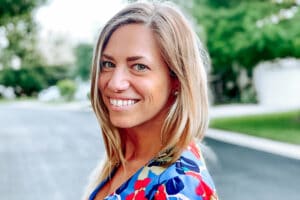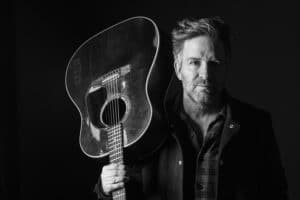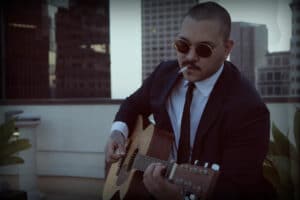Soul rocker Katie Burke: Sobriety’s gift is the elevation of her art
Soul rocker Katie Burke: Sobriety's gift is the elevation of her art
Sensitivity makes her a talented artist, but it was a heavy cross for Katie Burke to carry during her adolescent years.
It’s still a part of who she is, and the growing attention she’s getting as a ferocious blues/soul/rock singer for KB and The Idyllwilde, the band she founded and fronts, makes her a little nervous. But thanks to recovery, she’s in a better place than she’s ever been, and she has a program to fall back on in times of stress, she told The Ties That Bind Us recently.

Through recovery, however, she’s learned to draw on that sensitivity as a powerful tool for self-love. The Buddhist-based program Refuge Recovery has helped her discover the Middle Path, a place that embraces pain for its inherent humanity and in so doing prevents it from creating an endless feedback loop of self-imposed suffering. In times of stress, she holds fast to words of wisdom from Dave Smith, the mentor to her own mentor, Mikey Noechel: “Start caring about your pain.”
“My mentor tells me all the time, ‘Can’t you just admit that you’re having a hard time?’” Burke said. “We try to hate the hard times out of us, and we think we’re doing something wrong if we’re having a hard time. There’s such a beauty to the surrender of saying, ‘This is really hard,’ because it creates such a soft place within yourself. I heard a talk one time that made something really click in me — ‘Be kind to yourself, so you can take ridiculous risks.’
“I thought what was driving me and all of us was that critic that drives you to make yourself better. Without it, thought I would stop being good or great, but it was actually holding me back from taking massive personal risks. The way to take those risks is to have a safe place to land, and that is compassion for yourself. That’s a safety net. You can jump anywhere, and you can’t fail. If you cultivate that deep safety in yourself, you discover that you are unstoppable and so lovely.”
Pushing back against permission
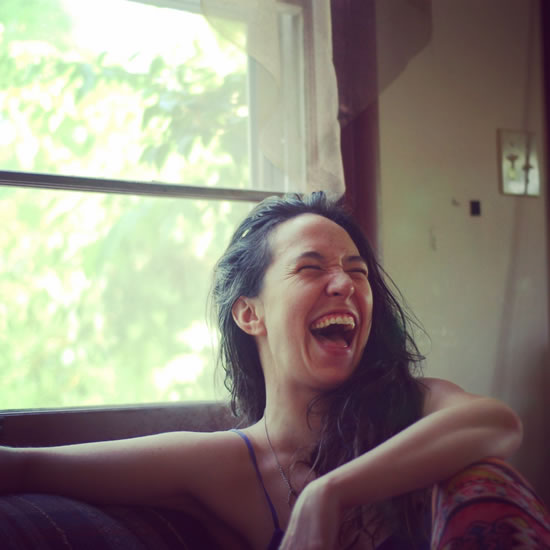
“I grew up in a super supportive environment, and I was a really odd kid,” she said. “I wanted to try a lot of stuff. Every time I would see it, I wanted to try it, and they were always so supportive.”
And music provided a soundtrack. She remembers listening to “Sgt. Pepper’s Lonely Hearts Club Band,” lying on her back with an arm thrown over her eyes, feeling every chord reverberate through the carpet of her childhood home. The way that band pushed back against traditional rock ‘n’ roll boundaries made a profound impact and set the stage for her own creativity.
“A lot of the defining moments in my life have been about permission,” she said.
As singer in choir, she pushed back against the limitations set forth on her assigned role. But then she saw the film “The Color Purple,” and the scene where the character Shug Avery marches into the church belting out “God’s Trying to Tell You Something” served as an artistic awakening, she said.
“I would end up belting things out like that in choir, and the directors would always say, ‘What are you doing? You’re standing out!’” she said. “That was really frustrating, because I felt something transcendent very deeply, and I wanted to take it somewhere else because the notes weren’t enough. That was a permission moment, and it helped me realize I was totally allowed to sing the way I was singing.”
She quit the choir and began to discover her voice, but she also began to discover alcohol. Burke believes she was an alcoholic from the moment she took her first sip, and she remembers well the fixation she had on getting and consuming the next one that was a constant thought companion.
“Everybody else wasn’t thinking about it all the time, but I was,” she said. “I would not have a good weekend unless I was drinking, and that led to horrible things, and I was still lying to everybody. I lost all my friends my senior year, so the day I graduated, I just left. I didn’t say bye to anybody.”
The downward spiral
She wound up at Stony Brook University on Long Island, where she threw herself into acting and theater. At the time, the songs she wrote were strictly personal ones, often somber reflections of the emotional turmoil she hid behind a veneer of academic excellence.
“All I wanted to say was, ‘Please save me from myself!,’ and I had no idea how to do that,” she said. “I got big into Adderall and speed from mid-high school on, and my creativity got locked in with Adderall. I was this raw actor, this huge raw talent with no off switch, and that served me well on stage. But off, my relationships were (lousy), I was totally alone, and even though I had friends here and there, the sense of myself was lacking.”
And thus began a pattern of pain avoidance that would persist until she found recovery. She got into grad school at New York University, but by that point, she was a “full-fledged Adderall addict” who drank to come down. She wrote term papers for money to support her habit, attempted to take part in an intense and grueling schedule of course work and still managed to do well, but her attendance fell off to the point that administrators dismissed her.
“They told me, ‘We don’t think you’re dedicated, because you’re not showing up to class,’ and inside I was screaming, ‘That’s because I’m dying!’” she said. “I didn’t want to tell them I was addicted to drugs because I was afraid they would kick me out, and then they kicked me out anyway, so that was one of my worst fears come true.”
And so began her vagabond period, throwing herself into unhealthy relationships with guys drawn to her gypsy-like charms. One bright spot during those dark times propelled her down a musical path, however: A homeless guy with a guitar asked her boyfriend for a cigarette, then asked him if he played guitar. Not one to be shut out of the conversation, Burke chided him: “You didn’t ask me if I played guitar!”
“So I pick up the guitar and play a song called ‘Cherry Tree,’ the second song I ever wrote when I was 14,” she said. “I belted it out right there in Washington Square Park, and from that moment, after getting kicked out of grad school, I was like, ‘Music is it.’”
Too tired to keep living, too scared to die
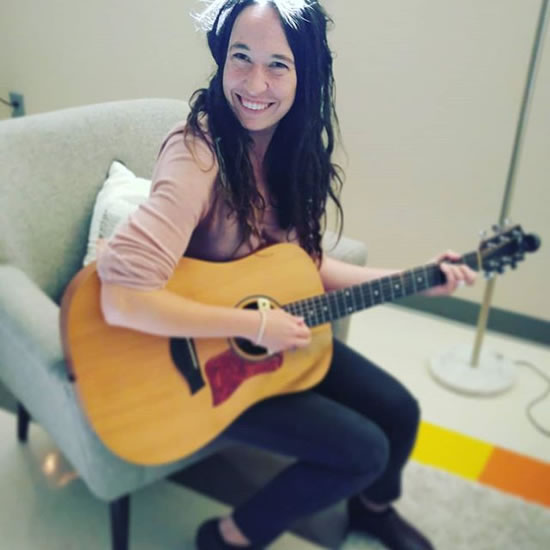
“I was drinking every day, because the liquor store was next to my house, and I remember waking up one day, and I went into the kitchen to kill myself,” she said. “I was going to end it, and I was so ready. I was so tired of waking up at 8 a.m., drinking a ton of beer, falling asleep, living off of unemployment.
“But my friend James was in there, and he just talked to me. I remember being mad that he was in the kitchen, and I just lost my nerve. That’s when I realized, that was it. During my next conversation with my sister, she said, ‘Katie, just come home.’”
She moved back in with her folks in Marlboro, Mass., and stayed for a year and a half. She worked at a bar but wasn’t drinking, and one night, a singer-songwriter from Nashville played there. She’d stopped playing, afraid that without the chemical muse of booze and Adderall she wouldn’t be able to do it, but her boss insisted she get on stage anyway.
“I sang with him, and the guy was, ‘Where are you going after this?’ I told him Austin, and he said, ‘No, you’ve gotta come to Nashville,’” Burke said. “We started talking, and about six months later, I was ready to go, so I contacted him.”
In Nashville, however, she started drinking again, and in June 2017, her world came apart at the seams when Peter died. That was her “come-to-Jesus” moment, she said: It was time to get busy living, or get busy dying.
“The day Peter died was like a Greek play; I remember hitting the ground and pounding it, and it felt like there was 5,000 pounds of soaking wet wood on me,” she said. “I knew I had to get sober or end it, and I was ready to step into the abyss and die, because I felt like, what’s the point of living now that my best friend, the only person who knew me in this world, was gone? But I was able to stand up, and I looked up, and I heard his voice:
“‘Boobies’ — that’s what he used to call me — ‘Boobies, you gotta do it,’ and I thought, ‘I’m not letting him down. This is it.’ And that started the mourning process, and that was a whole other flavor of drunkenness.”
That same day, she had received a job offer from Sunflower Café, Nashville’s premier vegan spot, and those first few weeks were rough ones as she processed Peter’s death. The last time she drank, she called in sick; upon returning to work, she expected to be met with derision, but her coworkers instead pointed her to Noechel, a Sunflower employee who moonlighted as a counselor.
Out of the darkness
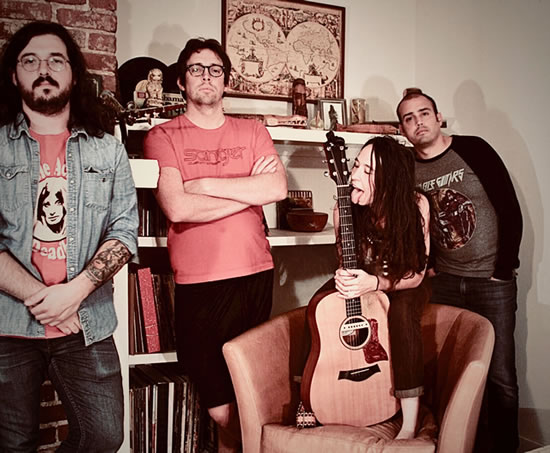
KB and the Idyllwilde
“On Aug. 18, I went to my first Refuge Recovery meeting, and we meditated right there in the room,” she said. “It was crazy, because for two months prior, I had been asking my friends to meditate with me. I was so ready to do that, and after that, it was all I wanted to do.
“I had been to (Alcoholics Anonymous) before, but this was so different. It felt like there was a grace and a space to really stretch myself. The containers of everybody’s compassion were just huge, and they would get bigger and more encompassing as we would meditate together. I felt really safe there, like I could slow down.”
And so she kept going back. Refuge Recovery is “grounded in the belief that Buddhist principles and practices create a strong foundation for a path to freedom from addiction,” according to the program’s website: “This is an approach to recovery that understands: All individuals have the power and potential to free themselves from the suffering that is caused by addiction.” It’s a program that’s nationwide — there is a standing Saturday night meeting here at Cornerstone of Recovery — and for Burke, it was more than just a way out of her addiction: It was a way forward in her life and music.
“Before I moved to Nashville, the sound I wanted to make, that soul-rock thing, was in my head,” she said. “I could hear it. I met Will (White) through an online forum; he was like, ‘I’m looking for a band!’ and I was like, ‘I need a guitarist!’”
White moved in with Burke and introduced her to Austin Solomon, who would become the band’s drummer; Austin brought his brother into the fold to play bass, and KB and The Idyllwilde played its first show in September. The feedback was immediate: Burke remembers the sound man at that show telling them that they reminded him of vintage-era Rolling Stones, back before age stooped Keith’s back and Charlie’s scowl became permanent. They wrote their first single, “Believer,” after a particularly challenging six-month period at Burke’s job, and it’s a choogling slab of greasy rock on which Burke sounds like someone put Bonnie Raitt, Janis Joplin and Susan Tedeschi into an alchemist’s cauldron.
Together, they’re working on a debut album; a new single, “Bend,” will be released early next year. And after many miles and many struggles, Burke feels like she’s finally making the music she was born to make: wild, free, utterly uncompromising and in no need of anyone’s permission.
Her best life: Art without the torture
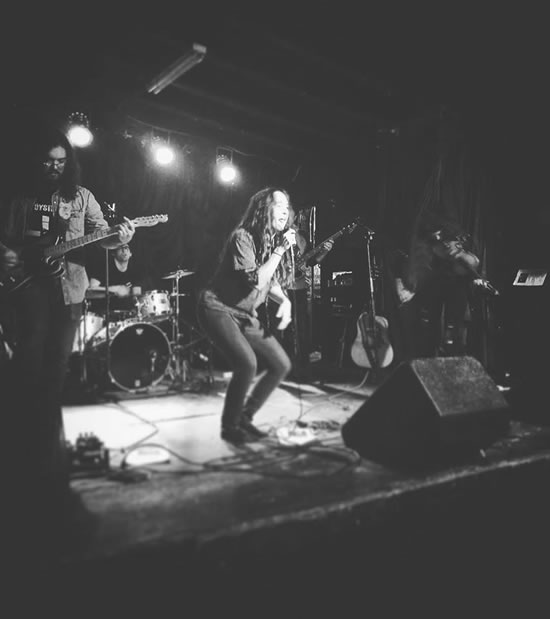
“All this cool (stuff) keeps happening to me, but the more I rely on it to fill me up, the more it’s so beautifully evident that I can’t,” she said. “The more cool the gig is, the more I’m aware that it can’t fill me up. The one relationship, the only one I need to focus on, is the relationship to myself, and that will be mirrored in everything around me, always.
“The biggest thing I’ve learned is that if you don’t have time to meditate, if you don’t have time for yourself, no one else will have time for you, I promise. That’s the only thing that creates change and beauty, and you’re the only one who can do it.”
Perhaps the biggest realization, she added, is that the whole “tortured artist” mythos is actually a mirage. The songs she writes and brings to the band, the shows she plays, the life she’s creating as one of Nashville’s up-and-comers is all brighter, bolder and more beautiful thanks to recovery, and that’s applicable to any artist who feels they must suffer to create, she said.
“The healthier you get, the more your work changes; the more your work changes, it also gets easier to show up for, and then it really starts showing up for you, because you’re showing up for yourself,” she said. “Drinking, drugs, toxic relationships — these all keep your work sub-par. I’m sober and making the greatest work of my life.
“It is exciting, daring and brave, because I decided to try and be those things as much as I could. Creativity follows our lead, so it followed suit to match my intention. Living life can be hard; there is plenty of hardship in the human condition before you ever even start to get twisted with alcohol and drugs. You don’t need to have a life of starvation or homelessness or recklessness to be a great artist — you need only to be human.
“To be an effective and sustainable artist, you need only a clear heart, and typically that comes with the clear intention to communicate and explore,” she added. “That is sobriety’s gift to artists.”
Check Out These Other Artists' Stories

